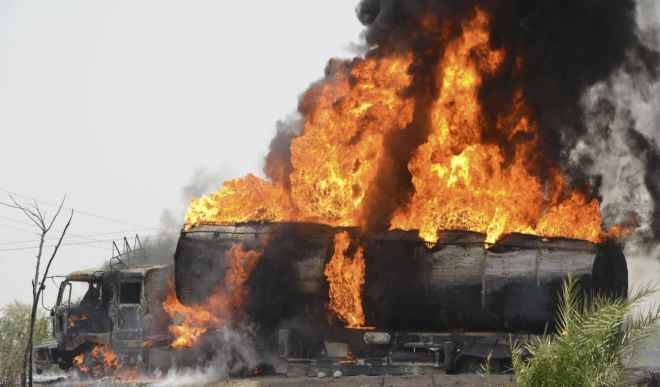
I am using this medium to call on the Federal Government to find a lasting solution to the frequent tanker accidents. It would be recalled that in the early sixties to late eighties, petroleum products were conveyed through the railway and pipelines however, in the early nineties the railway and the pipelines were abandoned and heavy trucks were used to carry petroleum products.
When one is dealing with highly inflammable products such as petroleum products, one needs to be proactive by putting in place all precautionary measures in safeguarding the lives of the citizenry. Those that initiated the policy of employing heavy trucks in conveying highly inflammable petroleum products did not have at the back of their mind the need to conduct an “Accident Simulation Test” not only that but there was nothing like contingency plan in place.
The contingency plan will address the issue of the types of resources both human and materials that are available to combat fire accident, the adequacy of the resources, the logistics and the Principal officer to contact in case of emergency. Tanker accidents do occur as a result of the following: lack of proper vehicle maintenance, failure of tanker drivers to comply with the traffic rules and regulations, illiteracy, lack of enforcement of traffic laws, bad roads, overtaking, over speeding and poor vision. Studies have shown that 85% of the tanker drivers are stack illiterates. Most of them can neither read nor write and to compound the problem majority of them are between the ages of 18 and 22 years. These are young people who cannot handle heavy trucks. We cannot continue to waste human and material resources. Something urgent needs to be done in order to prevent further carnage on our high ways. The question now is: what can we do to reduce carnage on our highways? In order to reduce carnage on our highways, the following measures must be taken:
First, as a palliative measure all tankers carrying petroleum products should be banned from plying the roads during the day. Their movement should be restricted to night from 11:00pm to 5:00am; and there is need to carry out routine inspection of all heavy duty vehicles in order to ascertain their road worthiness.
Secondly, all traffic rules and regulations pertaining to tankers and other articulated vehicles should be vigorously enforced.
Thirdly, the Federal Road Safety Corps in collaboration with the National Union of Petroleum and Natural Gas, Petroleum Tanker Drivers Section should engage the drivers in rigorous traffic training to avoid frequent accident; and they should make it mandatory for all the tanker drivers to undergo psychiatry test every six months in order to ascertain their mental well-being.
Finally, the Federal Government should earmark more funds to the rail system in order to avoid repetition of the disaster.
Oladele Oladipupo, Ede, Osun State.




